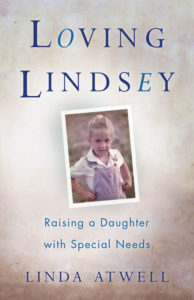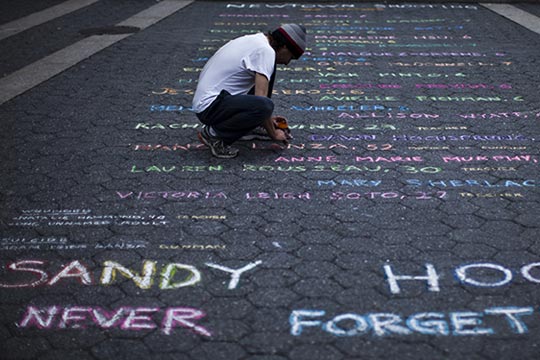I wrote this piece shortly after the Sandy Hook Elementary School shootings, then hesitated to throw my fourteen hundred words into the verbal boxing ring. Almost three hundred and thirty-six hours have ticked by since those incomprehensible, unexplainable moments changed all our lives. My mind continues to wrestle with what should be done. I don’t have the answers but I still feel the need to share my thoughts.
On December 5th, an Amsterdam taxi driver was the last person I conversed with on my way to the airport.
 “Where you from?” he asked.
“Where you from?” he asked.
“Oregon,” I said. “On the west coast of the United States.” He nodded. “Ever been there?” I asked, hoping to continue our conversation.
“No,” he said. “And I don’t plan to go. It’s too dangerous.”
I’d never thought of the United States as “too dangerous too visit.” But the taxi driver’s words reminded me of a recent conversation I’d had with a police officer from New Orleans. I’d heard that his city averaged one shooting per day.
“Is that true?” I asked.
“That figure is low,” he said. “Last year we had 411.”
Within my first few days back in Oregon, a child brandished his father’s gun at a woman, trying to hijack her car from a church parking lot. According to Portland news stations, this eleven year-old threatened to blow the woman’s head off.
On December 11, Jacob Roberts entered Clackamas Town Center and opened fire, wounding 15-year old Kristina Shevchenko, and killing innocent Oregonians–Steve Forsyth and Cindy Yuille–before turning the gun on himself. My friend works at Macy’s. The masked man sprinted past the jewelry department. When Crystal recognized gunfire, she dropped to the floor and counted the quick shots: one, two, three, four, five, six, seven. She cowered behind glass cabinets with two other employees, trembling. Eventually, they all ran to safety.

©Gary Jeanfaivre
Three days later, Adam Lanza entered Sandy Hook Elementary School in Newtown, Connecticut and massacred twenty children and six adults. The survivors? They will suffer numerous scars not physically caused by bullets.
My husband is a retired middle school teacher. The Sandy Hook Elementary School shooting could have been at my husband’s rural school where he substitutes on occasion. We’re friends with many teachers and students in the district. I can’t imagine what the mothers and fathers of Newtown are going through. I feel selfish when I write, I’m grateful this horrific incident didn’t happen here.
But it could have. It could’ve happened anywhere.
Whenever a mentally unstable person commits a crime, a twelve-year-old wound opens, triggering ugly memories to fire in my head. At twenty, my intellectually disabled daughter willingly entered into an unhealthy relationship with an older man. He isolated her from family and friends. Lindsey began acting out of character: lying, skipping out of an apartment owing money to her landlord, trying to cash bad checks. My daughter insinuated this man owned weapons. She wrote letters containing vague threats to anyone who “got in their business.” How serious could these threats really be? I wondered. After all, she’s mentally challenged. But under this man’s influence (Patty Hearst, a woman with typical intelligence, had been brainwashed by the SLA in the 70s)–I wasn’t sure what Lindsey might be manipulated into doing.
We sought assistance from law enforcement.
“Unless a crime’s been committed, nothing can be done,” the officer told me. “She’s of legal age. It’s not a crime to pick a bad partner.”
I related to Liza Long’s controversial essay, and how she described her son’s transformation from nice to outrage without warning. Anger hardened his eyes, his mood. Nothing calmed him once that switch was flicked. Her words described Lindsey’s sudden outbursts to a “T”. During that period, I’d begun to fear my daughter–an incredibly painful admission for any mother. I’m pretty sure Ms. Lanza never expected her son to turn on her. I bet Kip Kinkel’s parents never thought their son would kill them or shoot up Thurston High School or that the parents of the gunmen of Columbine or Aurora or of any other shootings would ever be capable of mass murder, either. What parent could (or wants to) fathom that their precious child could turn into a monster?
My daughter left that corrupt relationship eight years ago. She visits a mental health counselor once a month. (It’s not enough, but that’s all the State’s health plan allows.) Last October, Lindsey married her long-time boyfriend. She now writes sweet thank you notes and grins whenever she talks about “her man.” But for many parents who experience anxiety when they think of what the future holds for themselves and their mentally unstable children–the future is sketchy with little outside support.
Until someone snaps. Then all sorts of advice surfaces. Advice you wish you could have taken advantage of when you were screaming for help.
The National Rifle Association (NRA) spokespersons say, “Guns don’t kill people. People kill people.” They say if more law-abiding citizens packed concealed weapons, these gunmen would have been stopped in their tracks. Some say guns are needed to defend themselves and their homes. But how often do home invasions occur? Would these homeowners be able to properly handle their weapon during a confrontation? Statistics have shown that someone trying to defend his home ends up wounding himself or an innocent victim in the crossfire, or the gun is wrangled from his grip and targeted at the owner instead. Other statistics show that suicide and accidental shootings increase twenty-two times with a gun in the home. Another favorite gun supporter statement is: if we don’t have guns, then only criminals will have them. If that’s true, why have gun related deaths decreased in England after the country implemented stricter gun laws? And why isn’t this the case in European countries and in Canada, where guns are regulated and citizens don’t throw public temper tantrums about the strict guidelines?
As a fan of the travel guru Rick Steves, I have read his “How to” guides on touring Europe. He warns that a traveler may experience unpleasant body odors, cramped hotel accommodations compared to U.S. standards, and an encounter with a pickpocket. But the one thing a traveler should not have to worry about while touring Europe is: getting shot. I’m not saying a random shooting never occurs. In July 2011, an armed man went berserk in Norway. Yet this event was rare compared to U.S.A. statistics.
Our government warns, “It’s too dangerous to travel to sections of Mexico.” (2,606 murders with firearms in Mexico compared to 9,369 in United States*. Will other countries now post warnings on their websites about visiting the United States?) Still, John and I visit Mexican destinations whenever we can. We’ve never experienced any act of violence (or heard of any) while staying south of our border. Nor do I fear (even after the police officer’s admission) returning to New Orleans if an opportunity ever arises.
My childhood home had guns. My dad hunted, so I’m not afraid of rifles (but I am afraid of bullets), nor do I fault anyone for owning one–as long as it is stored out of the reach of children (and those who should not have access to them). But I don’t understand the concept of assault weapons for the general public. I don’t understand why people I love and admire, scream and shout and shake their fists, saying, “No one…and I do mean no one, will ever take away my right to bear arms!”
In my mind, what it comes down to is this: Values. Do we truly value people with mental disabilities? If so, wouldn’t these individuals have access to adequate mental health treatment? And because of the Second Amendment, do more Americans value the right to own and bear arms more than the freedom to roam our malls, visit a movie theatre, or attend school safely? Some gun activists might say that all these activities are safer because of our liberal gun culture. Yet in developed countries where gun ownership is regulated, fresh-faced grade-schoolers or mall shoppers or movie-goers or college/high school students rarely become victims of mass shootings. Unless we (as an entire nation), responsibly change the gun and mental health culture in the United States, people who have no business handling weapons will have easy access to them, more innocents will lose their lives, and a taxi driver from Amsterdam will continue to think that the U.S. is too dangerous to visit.
*statistics found at Nationmaster.com
 My first book, Loving Lindsey: Raising a Daughter with Special Needs will be out September 26, 2017. If you would like to learn more, click here.
My first book, Loving Lindsey: Raising a Daughter with Special Needs will be out September 26, 2017. If you would like to learn more, click here.
Every month or so, I highlight a non-profit organization that offers support to people with special needs. This month, I’m featuring The Arc.
The Arc promotes and protects the human rights of people with intellectual and developmental disabilities and actively supports their full inclusion and participation in the community throughout their lifetimes. The Arc believes that all people with intellectual and developmental disabilities are defined by their own strengths, abilities and inherent value, not by their disability.
For 60 years, The Arc has been on the front lines in making change happen for people diagnosed with Autism, Down syndrome, Fetal Alcohol Syndrome, and a range of diagnoses across the spectrum of intellectual and developmental disabilities. The Arc is the nation’s leading advocate for all people with intellectual and developmental disabilities and their families and the premier provider of the supports and services people want and need.
If you are looking for an organization that could use your help, consider The Arc. You can donate household furnishings, clothing, and other useful items–even cash. They often pick-up donations from your front porch. If you aren’t familiar with the good things The Arc does in your community, please click here to learn more. And remember, all donations to this organization are tax-deductible.

